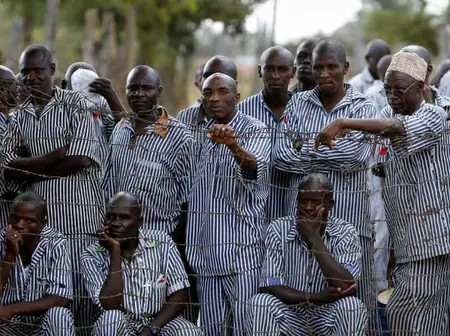Members of Parliament have renewed calls to introduce and enforce conjugal visits for inmates as part of broader prison reforms.
The Parliamentary Committee on Constitutional Implementation Oversight (CIOC) made the recommendation on Thursday, September 11, while on tour at Kaloleni Main Prison in Kilifi County.
The committee argued that the recognition of conjugal rights is a vital step towards the restoration of human dignity and ensuring the rehabilitation of prisoners.
Suba South MP Caroli Omondi headed the delegation, where legislators also posed questions about poor infrastructure and access to health care in prisons. While advocacy for prisoners’ rights has been ongoing, the issue of conjugal visits remains divisive. MPs, however, pledged to push forward with reforms to address these challenges.
Omondi noted that prisons cannot implement conjugal rights without a proper legal framework.
“We have discussed the matter of conjugal rights many times, and not just conjugal rights but also family rights. At the moment, you cannot say that people will access conjugal rights because there is no framework law,” Omondi said.
He added that the committee is drafting bills on priority issues affecting inmates, including conjugal visits, right to vote, and reproductive health.
“First, there has to be a law. These are things we are working to amend so that we can establish a framework for such matters. We have also discussed voting rights for inmates and even [reproductive] health, all these issues,” he revealed.
Omondi added that the committee had engaged both inmates and prison officers to explore ways of aligning prison laws with the 2010 Constitution, noting that reforms in the sector remain unfinished.
“We came to speak with the inmates as well as the prison officers so that we can review how to change the laws and align them with the 2010 Constitution, because prison reforms are still not complete,” he stated.
During the inspection, the committee also pointed out other pressing challenges in the prison system, including overcrowding, chronic underfunding, poor healthcare services, and a lack of professionals such as psychologists and counselors.

Leave a Reply